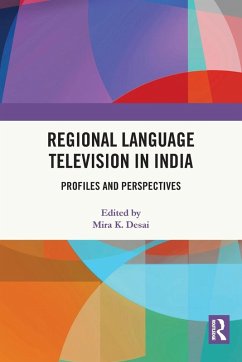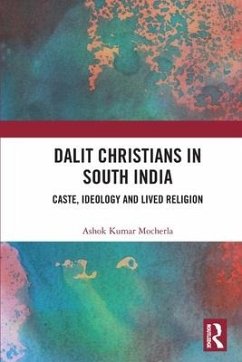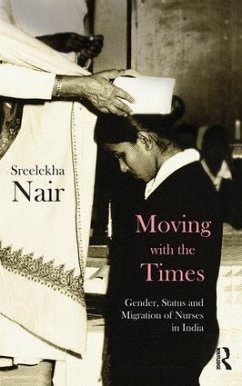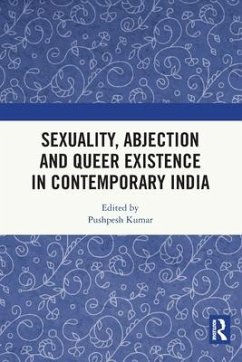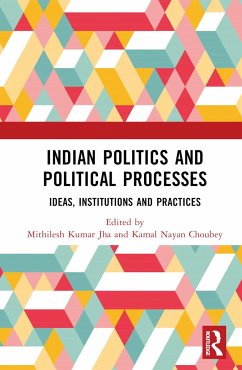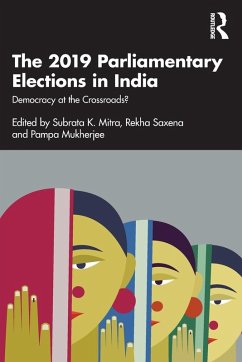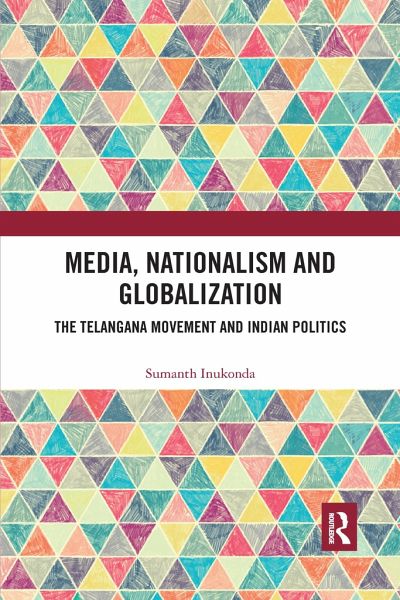
Media, Nationalism and Globalization
The Telangana Movement and Indian Politics
Versandkostenfrei!
Versandfertig in 6-10 Tagen
45,99 €
inkl. MwSt.
Weitere Ausgaben:

PAYBACK Punkte
23 °P sammeln!
This book explores the meanings of nationalism in a post-globalization, postcolonial context. It provides an in-depth understanding of the relationship between marginalized groups, media and politics by a focused study of the Telangana movement in India.Events like the Arab Spring, unrest in Myanmar and Ukraine, and the Brexit, Kurdish and Catalan referendums have proved how catalytic the changing media environment has been in reshaping the nature of resistance and social movements. Based on the author's ethnographic research, this book examines how marginalized groups engage with the media an...
This book explores the meanings of nationalism in a post-globalization, postcolonial context. It provides an in-depth understanding of the relationship between marginalized groups, media and politics by a focused study of the Telangana movement in India.
Events like the Arab Spring, unrest in Myanmar and Ukraine, and the Brexit, Kurdish and Catalan referendums have proved how catalytic the changing media environment has been in reshaping the nature of resistance and social movements. Based on the author's ethnographic research, this book examines how marginalized groups engage with the media and their community to participate in political processes. Analyzing public meetings, folk performances, pamphlets and media reports of the Telangana movement, the author reflects on the cultural notions of nationalism and the politics of state formation in the post-colonial context. This volume also evaluates the role of students and intellectuals in contemporary social movements and in uniting the discontents of globalization.
Highlighting intersections of performativity, geography and justice, this book examines changing articulations of identity and everyday forms of resistance. It will be useful for students and research scholars interested in media and communication, cultural studies, political sciences, ethnic and minority studies and sociocultural movements in India.
Events like the Arab Spring, unrest in Myanmar and Ukraine, and the Brexit, Kurdish and Catalan referendums have proved how catalytic the changing media environment has been in reshaping the nature of resistance and social movements. Based on the author's ethnographic research, this book examines how marginalized groups engage with the media and their community to participate in political processes. Analyzing public meetings, folk performances, pamphlets and media reports of the Telangana movement, the author reflects on the cultural notions of nationalism and the politics of state formation in the post-colonial context. This volume also evaluates the role of students and intellectuals in contemporary social movements and in uniting the discontents of globalization.
Highlighting intersections of performativity, geography and justice, this book examines changing articulations of identity and everyday forms of resistance. It will be useful for students and research scholars interested in media and communication, cultural studies, political sciences, ethnic and minority studies and sociocultural movements in India.





